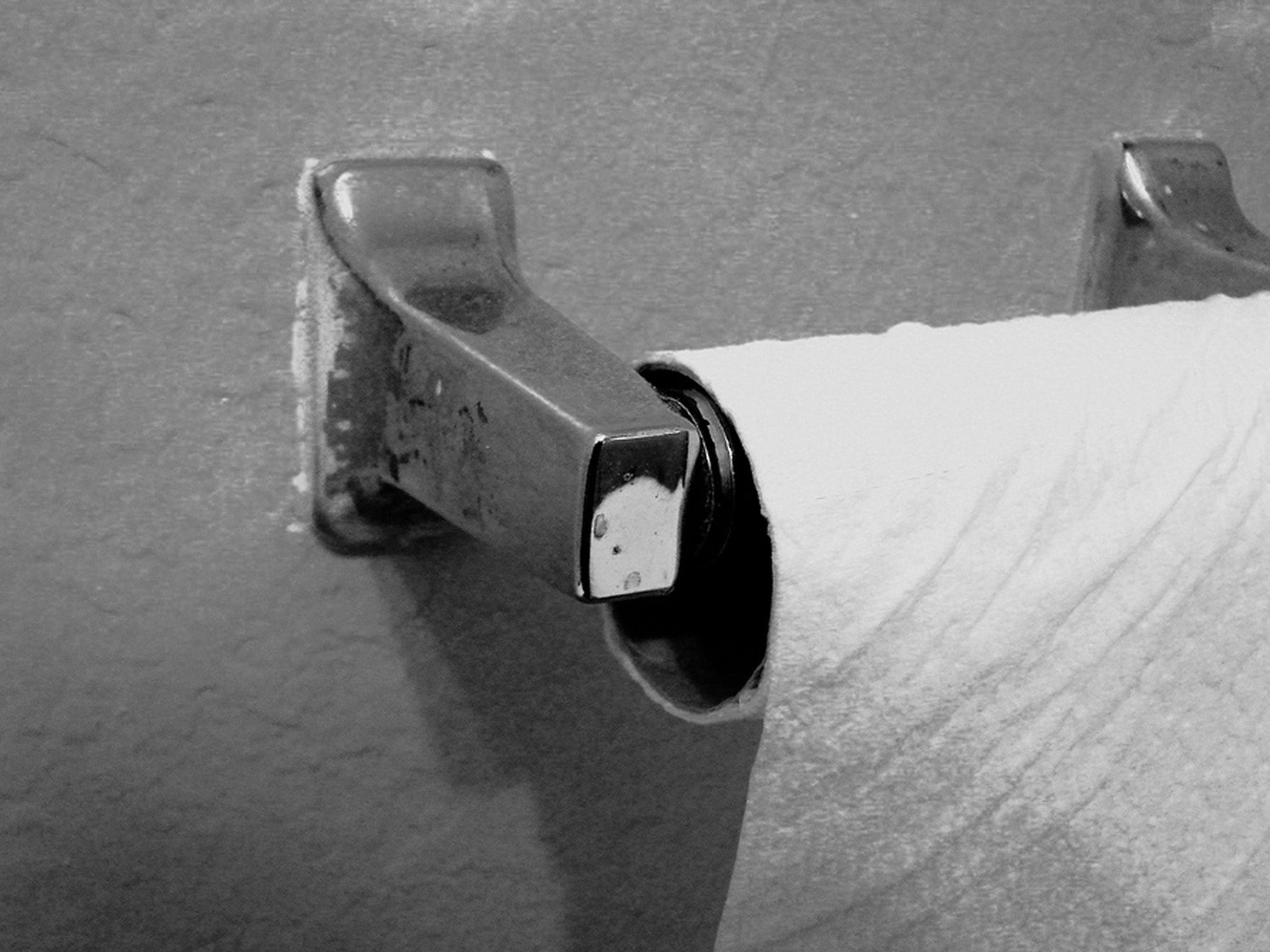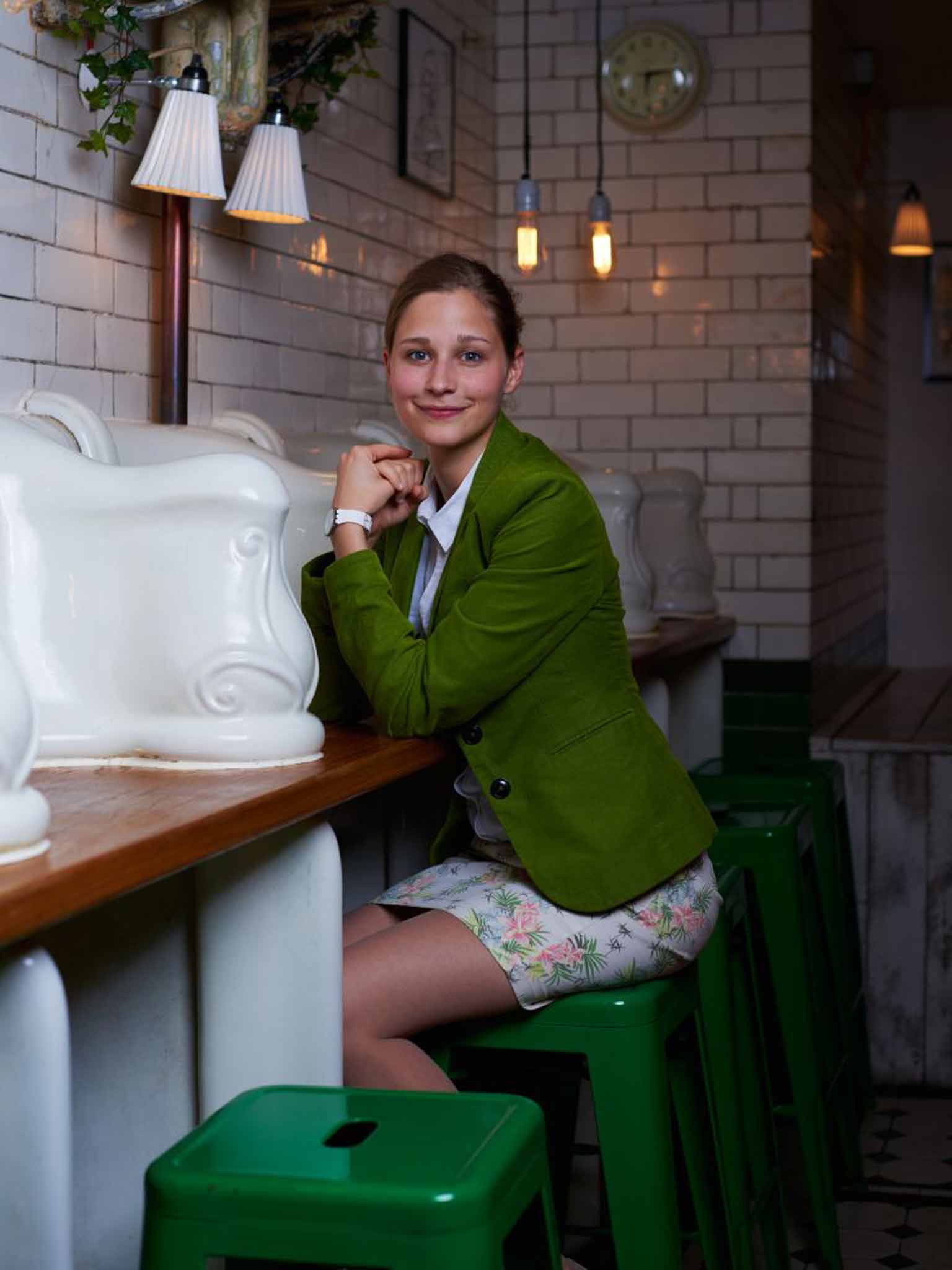How a book about our guts has become a surprise bestseller: Breaking the poo taboo
Its author, a German microbiology student, talks to Simon Usborne about the beauty of intestines and the 'masterly performance' that is defecation

A new book about the gut that has sold more than a million copies in Germany would make ideal loo reading, had it not included a chapter about the problem of sitting down to defecate. We did not evolve to linger on porcelain thrones, you see, and in those countries where squatting remains normal, colons and their owners are demonstrably happier.
"There is a muscle that encircles the gut like a lasso when we are sitting… creating a kink in the tube," Giulia Enders explains in Gut: The Inside Story of Our Body's Most Underrated Organ. She calls the mechanism "an extra insurance policy, in addition to our old friends, the sphincters" (you have two sphincters – keep reading) and cites studies showing that squatters, with their unkinked guts, are less susceptible to haemorrhoids and constipation.
I meet Enders, a 25-year-old student at the Institute for Microbiology in Frankfurt, inside an underground public lavatory in central London. "Is there a toilet in this toilet?" she asks when she arrives. There is not, a barista tells her. The Victorian urinals, abandoned in the 1960s, have been converted into cafe with booths and stools, and no room for anything else.
After a dash to a pub loo above ground, Enders talks with infectious energy about the wonder of the gut. She has been delighted to discover how many people share her fascination with a subject that can suffer for being taboo. "Even today in the taxi, I told the driver what I was doing and within about two minutes he was telling me about his constipation," she says in perfect English, which she owes to a year of study in the US. "And it's not just him. It's ladies with chic hair at big gala dinners, too. Everyone wants to talk about it."
Enders first got noticed after a self-assured turn at a science slam in Berlin three years ago. Her 10-minute lecture went viral on YouTube, and now, weeks after completing her final exams as a doctoral student, she is a publishing sensation. Her book, called Darm Mit Charme ("Charming Bowels") in Germany, has sold more than 1.3 million copies since it came out last year. Rights have been sold to dozens of countries.
Her way into the gut is a lightness that some reviewers have found too childish or lacking in scientific rigour to be taken seriously. But there is something compelling and refreshing about her curiosity and popular approach. "When I read the research, I think, why don't people know about this – why am I reading about it in some paper or specialist magazine? It's ridiculous because everyone has to deal with it on a daily basis."
After she explains the inspiration for her fixation (the suicide of an acquaintance who had had severe halitosis, and her own teenage skin condition, which turned out to have been caused by a wheat intolerance) Enders starts at the end of the digestive tract with what she calls the "masterly performance" that is defecation. "There is so much about the anus that we don't know," she says, reaching for a gluten-free chocolate chip cookie. "The first surprise is the sophistication of our sphincters… you know about the outer one because you can control it, but the inner one nobody knows about."
This inner opening is beyond our conscious control, releasing waste material into a sort of anal vestibule where, in Enders words, "a small taster" hits sensor cells that tell the body what it's dealing with and how to respond using the outer sphincter. This opening, and our mouths, are the recognisable and controllable ends of a system that, stretched out, would be almost as long as a bus. But it's the bits in between, and their link with the rest of our bodies, including our brains and emotions, that really interest Enders.
"Medical diagrams show the small intestine as a sausage thing chaotically going through our belly," she says. "But it is an extraordinary work of architecture that moves so harmonically when you see it during surgery. It's clean and smooth, like soft fabric, and moves like this." She performs a wavy, pulsating motion with her hands. Enders believes that if we could think differently about the gut, we might more readily understand its role beyond basic digestion – and be kinder to it. The great extent to which the gut can influence health and mood is a growing field in medicine. We speak of it all the time, whether we describe "gut feelings", "butterflies in our stomachs", or "pooing our pants" in fear, but popular understanding of this gut-brain axis remains low.

Last week, Professor Simon Carding, head of gut health and food safety at the Institute of Food Research, gave a talk about the role of the trillions of organisms that live inside each of us. Collectively known as the microbiome, these foreign bodies influence countless functions via the dizzying number of sensory cells in the gut. "Understanding how they influence the brain is becoming increasingly relevant to understanding aspects of human behaviour – particularly the causes and possible future treatments for serious neurodegenerative diseases," Professor Carding said.
A clinical trial at Oxford University, the results of which were published in January, suggested that "prebiotics", which promote the existence of certain kinds of bacteria in the gut, may work as nutritional therapies for stress, anxiety and depression. "We don't have all the evidence figured out, but there are some great scientists who are doing tremendous work on this and really pushing the hypothesis forward," Enders says.
Her own research concerns one of the two big, related challenges for the gut. One is the food industry and its increasing departure from the diets that our bodies evolved to deal with. The other is the growing resistance to antibiotics of many bacteria. A report commissioned by the British government proposed last week that the pharmaceutical industry invests £1.3bn to revitalise antibiotic research after decades of dangerous neglect. Enders' thesis, which she will complete this summer, concerns the way "bad" bacteria attach to cells in the gut in the first place. If they can be discouraged using new medicines, they could be flushed away before resistance becomes a threat.
Enders has the energy and telegenic features to become a celebrity doctor, but she would much rather be a real doctor and as soon as she files her thesis, she will start her practical year in hospital. "I just want to become a good gastroenterologist," she says.
While she is at ease while talking about sphincters, she understands that poo chat does not come naturally to us all – at least not right away. "Patients sometimes start to whisper when I ask them, like, how often do they go a day," she says. "And I start whispering too, but after a minute they realise I don't find it embarrassing at all, and nor do they, and we laugh about it. Then we stop whispering and talk normally."
'Gut' by Giulia Enders (Scribe, £14.99) is out now
Join our commenting forum
Join thought-provoking conversations, follow other Independent readers and see their replies
Comments